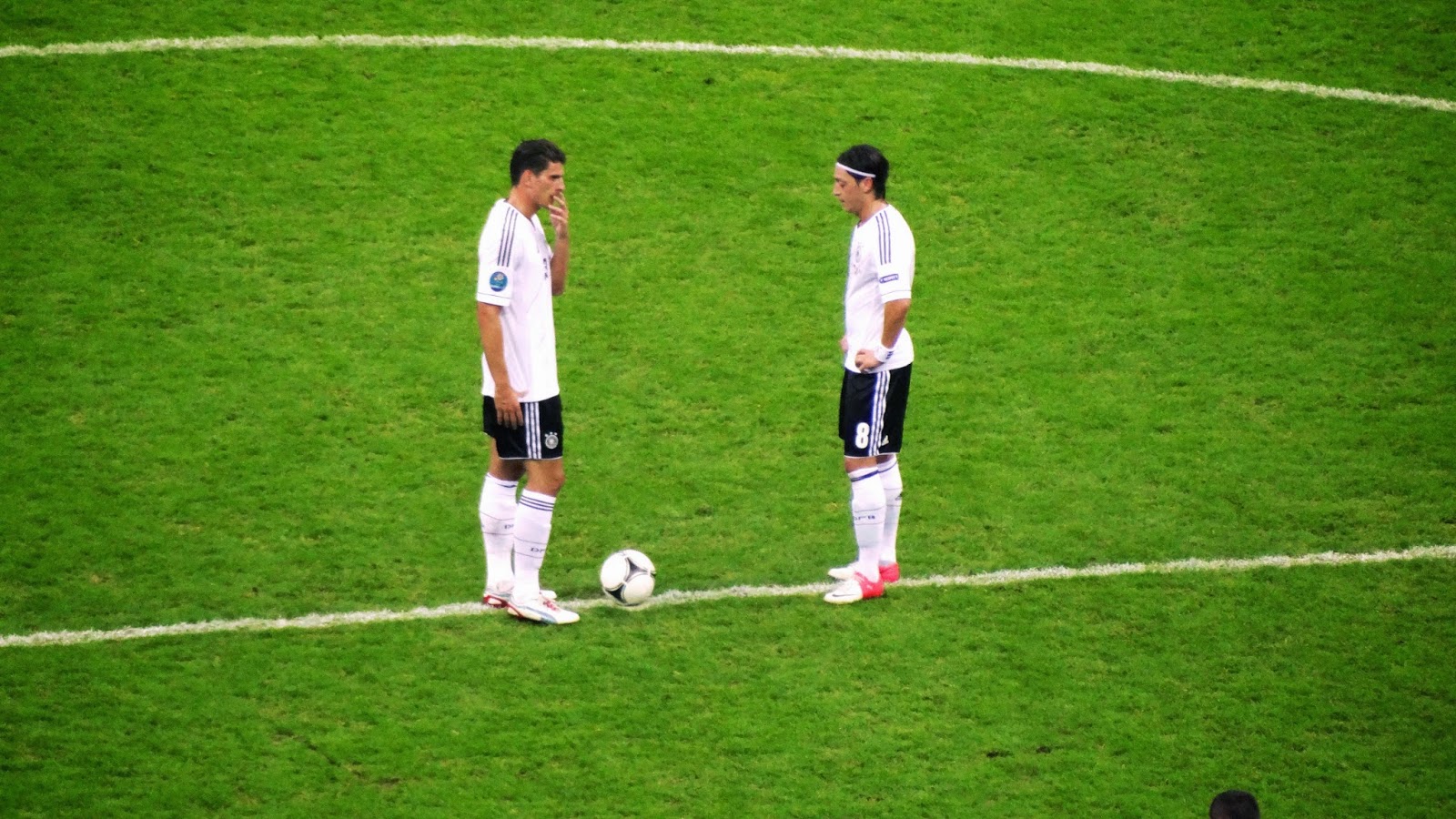And so the
knock-out stages of the 2014 FIFA World Cup have begun. Despite having the
‘home advantage’, Brazil (ranked third place in the FIFA rankings) were forced
into a penalty shoot-out by Chile (ranked 14th).
Brazil are not
the only nation to have faced testing opposition from supposed underdog
opponents. There are several notable
absences from the ‘last sixteen’ thanks to one of the most (perhaps the most) exhilarating Group Stages of
the competitions history. A series of
high scoring games and shock results have served to remind us of what makes our
sport so exhilarating - that any team can earn a result on their day.
I’ve been reminded
on several occasions of Italia '90 where a Costa Rican team considered as
something of a novelty embarrassed a supposedly superior Scotland team which
comprised numerous ‘star players’ of the day.
Return to
the present and Costa Rica are at it again. In the group stages they stunned
Italy and dispatched a lackluster England team.
Italy looked awful because Costa Rica had balance, discipline, stamina,
and tenacity, kept their formation and played a defensive game, man-marking and
off-side trapping the Italians constantly, which frustrated them and ground
them down. On any occasion that an Italian got the ball three Costa Rican's
descended on him, then when Costa Rica went forward it was fluid - get the ball
and immediately look for the next player to give it to, pass and move in short
triangles up the pitch, keep possession and frustrate and tire the opposition.
But it worked – and that's how you can win games when you aren't Brazil,
England take note.
Also, watch
the Costa Rican (and for that matter, the Chilean) coaches pacing the touchline
and making sure the team keeps to the plan. Contrast with England, Italy and
Spain whose coaches looked like dour, defeated men for 90 minutes, sat glumly
watching their teams disintegrate.
Speaking as
an Englishman, my observation is that our team seems to go into tournaments
thinking that they are in the same bracket as the best teams, only to fail. When
England played Italy, we made Italy look good because in reality we were an
average side with few, if any of the qualities I attributed to Costa Rica in
the previous paragraphs. We probably haven't been particularly good since about
1990 and the halcyon days of Butcher, Robson, Linekar, Shilton etc (or arguably
1996, where we did alright, but had a bit of luck and 'home advantage').
In
contrast, Costa Rica have been a real talking point and last night beat Greece
on penalties. Their football isn’t always pretty but they go into games knowing
what they need to do, and deliver results.
In their
book Soccernomics, Kuper and Szymanski pose the question are England really underachievers? Or is it just that the English
population expect too much of them? They postulate about England’s
achievements relative to their given resources and those of competing nations.
According
to their analysis, England are one of the most experienced nations in football,
and as a country has a relatively high financial income. It is however a medium sized country. When ranked on this basis, Kuper and
Szymanski believe England’s peers are therefore Russia, Azerbijan, Morroco,
Ivory Coast and Mozambique, rather than Brazil, Germany, and Argentina, etc.
When Kuper
and Szymanski’s variables and the England football teams results are
considered in relation to other footballing nations, it appears that between
1980 and 2001 they actually over-performed. Nowadays though they win plenty of
friendlies but not enough ‘big ticket’ competitive matches in which they face
much larger nations.
If we
believe the research then, England and the English should not expect to go into
World Cups expecting to just go in and win the competition playing the sort of
football that its squad of ‘star’/’household name’ players might whilst
representing their respective leading Premiership clubs. Instead, perhaps we ought to take a leaf out
of Costa Rica’s book and approach the competition as underdogs, playing a more
disciplined and well-drilled type of football where the sum of the whole is
greater than the sum its parts.









